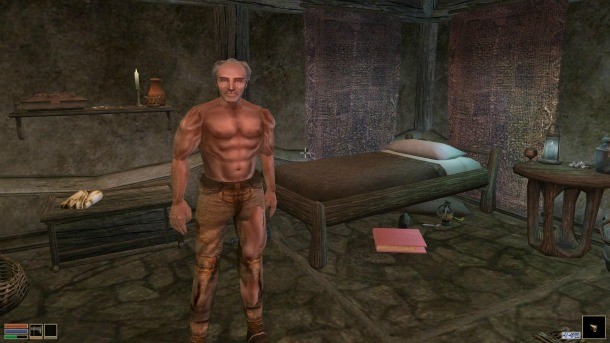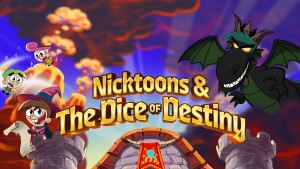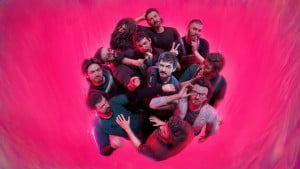Moments: The Departure Of Caius Cosades In Morrowind

The Elder Scrolls III: Morrowind marked my first trek into true open-world gaming.
The year was 2002, I was 12 years old, and I’d just purchased an Xbox copy of the game at a friend’s recommendation. I had a vague idea of what Morrowind was about – killing monsters, completing quests, leveling up your character. And, in a sense, that is what Morrowind is about.
What I didn’t know, however, was that Morrowind has nearly limitless replay value. I had no idea that in the upcoming months I would devote over 200 hours of my time to a single game.
Before this point I’d played a number of high-quality video games with large, free-roaming worlds – Final Fantasy VI, Super Mario 64, and Spyro the Dragon, among others. Morrowind, though, took the open-world concept to the next level. Not only can you go anywhere in the game, but you can do anything. You can interact with nearly every visible item – bowls, forks, lanterns, weapons, barrels, clothes, flowers, beds. You can talk to almost every NPC (or pickpocket them, or kill them). You can swim, you can levitate, and you can open every in-game door. The degree of interactivity that I found with Morrowind in 2002 was, for me at least, unprecedented.
This level of immensity became real for me during one particular moment. As many of you know, the third Elder Scrolls installment begins with the player on a prisoner ship in the small port village of Seyda Neen. Upon exiting the ship, the player is free to do anything he or she pleases. Naturally, I did a bit of exploring, but soon discovered that the in-game world was far too big to meander about with no direction. So I did some quests. I helped a bosmer named Fargoth get his enchanted ring back. I recovered the journal of an ambitious wizard who had fallen to his death from the sky. But, as is the case with many games, I found myself most intrigued by Morrowind’s main questline, which soon brought me to Balmora to meet an Imperial agent named Caius Cosades.
Caius Cosades, pictured above, plays a significant role in The Elder Scrolls III. He is Vvardenfell’s Grand Spymaster of the Blades, and acts as the player’s primary guide for a good portion of the game. He’s the one who first christens the player a Novice of the Imperial Blades. He’s the one who advises you to join guilds, and the one who points out how to find them. He’s even there when the player contracts the socially crippling corpus disease and has to zombie walk halfway across the continent to find a cure. In fact, I found myself using Caius Cosades as the anchoring source of direction in my first Morrowind playthrough.
As such, it came as a jarring surprise when, upon returning from my arduous search for a corpus cure, Caius announced he would be leaving the game. Forever. Apparently he’d been recalled to the Imperial City, which is outside the realm of The Elder Scrolls III.
I initially took Caius’ announcement with a grain of salt and left his house to go sell some loot. “He’s not going anywhere,” I thought. But sure enough, the next time I entered his house, it was empty. I exited and re-entered two or three times to be sure, but it remained uninhabited.
At that very moment, the sheer size and possibility of Morrowind hit me full on. All of its locations, and quests, and random encounters had been available to me from the get go, but only then did I understand the sheer breadth of it all. Caius was a character who, for all intents and purposes, acted as my in-game dad. With him gone, I was truly on my own in a massive video game world that I had only known for a few hours. The sensation was, perhaps paradoxically, both moving and immobilizing.
I eventually got used to the sense of freedom that Morrowind gives players, and I was glad to find a similar one in the two Elder Scrolls games since then. That moment, though – between direction and exploration, certainty and doubt – planted a deep-rooted love of open-world video gaming into my self-identity. And, in a strange way, that moment helped me not only find direction in my Morrowind life, but in my own life as well.










